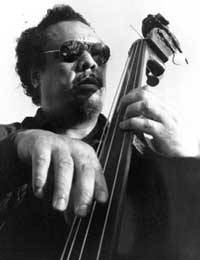Genre: brass band

Ok, so I know brass bands aren’t everyone’s thing, but hear me out. Fodens Brass Band based is in Yorkshire and steeped in history. Formed in around 1900 under the name Fodens Motor Works Band, you would be surprised how accessible this music is. The playing is so tight and melodic, and the virtuosity of each player shines through. You can hear the work that’s gone into every performance and can easily see why this band is in the world’s top brass bands. If you’re unsure of what a brass band involves, it is a basic set up of brass instruments (so trumpets, cornets, trombones, tubas etc) and includes percussion. Brass bands are tightly wound through history with the Salvation Army, as well as for playing marches. Brass bands have an intricate history, especially in Yorkshire, where many brass bands are still located today. Often they don’t play “traditional” classical music and have music specifically composed for them by specialist brass band composers. The people involved are very passionate about what they do and what they stand for, and literally live and breathe brass bands (in my experience!). Brass band music is now developing further and further, even into different sub-genres (eg. Acid Brass!).
Last night was a performance involving the renowned (in the brass world) Howard Snell conducting and trumpeter Rex Richardson as a soloist, along with other recognisable faces. Richardson was playing a piece on trumpet which sounded more like a saxophone, the way he played – he is known as being a fantastic soloist and lived up to that name last night – every note came across perfectly and the audience was clearly impressed (although who wouldn’t be?). The pieces were astounding – Spirit of Mingas was my favourite piece of the night (composer: Scott), as a dedication to the legendary Charles Mingas (a big name in the jazz world). The jazzy beats were so unusual to hear of a brass band and the finale was astounding – this was the last piece before the interval, and during the last section of music the band moved in around the audience members. This spread the sound out through the concert hall and changed it completely – suddenly everything was perfectly clear, all the bass-lines stood out and it really worked very well.

In the second half, Snell conducted an epic 25 minute song involving three long movements (for those of you that don’t know, a movement is a section in the music contributing to it’s overall form. There are breaks between the movements that make up a piece, but the audience does not clap in these breaks), by Heaton. Heaton is known for being a bit of a mysterious character, hard to pin down and known well for changing his mind. As Snell described it, this Partita uses the same rhythms as other brass band music, and the same harmony, but is somehow so different. The overall piece had such a dramatic energy that the whole audience seemed captured as they felt the music unfurl. The energy of the band continued over the evening and it felt a privilege to be able to enjoy such fantastic musicianship. I’ve seen Fodens before but I enjoyed it more this time – the atmosphere seemed better and I feel they were better received in the RNCM. As contributors to the Festival of Brass 2012 at the RNCM, this was a band that was apparently better received than anyone else over the weekend. I could definitely see why.
Even if you don’t think you’d like this type of music, I definitely would suggest you try listening to a little bit before you judge.
C x
